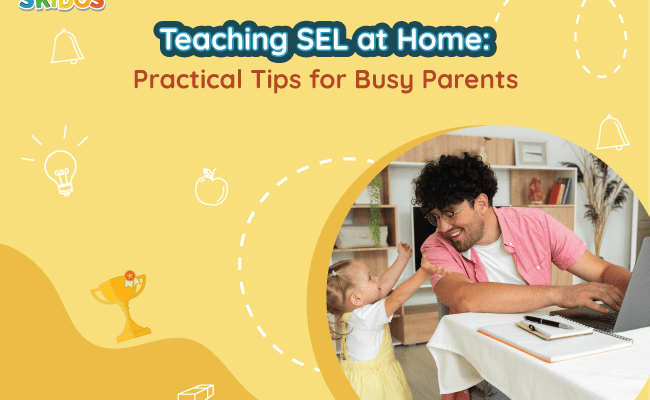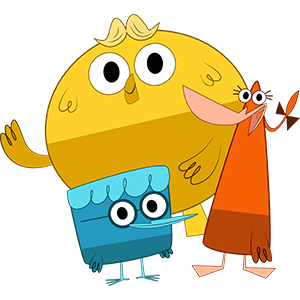In this blog, we’ll provide you with practical tips based on real-life scenarios to seamlessly integrate SEL into your family’s routine, ultimately leading to your child’s emotional growth and well-being.
Family Emotion Check-Ins:
Scenario: At the dinner table, ask your child about their day.
Action: Instead of a generic “How was your day?” try, “Can you share a moment when you felt really happy or upset today?” Encourage them to express their emotions and share experiences. Listen actively, offering comfort or celebration accordingly. This daily check-in normalizes discussing emotions.
Problem-Solving Role Play:
Scenario: Your child comes home upset because they had a disagreement with a friend.
Action: Role-play the situation with them, taking on different roles. Encourage them to brainstorm solutions and evaluate possible outcomes together. This exercise helps them develop problem-solving skills and empathy.
Empathy Stories:
Scenario: You are reading a story together at bedtime and want to, discuss the characters’ feelings and actions.
Action: Ask questions like, “How do you think the character felt when that happened?” or “What could they have done differently?” Encourage your child to understand perspectives and consequences, fostering empathy.
Feelings Journal:
Scenario: Your child often experiences strong emotions but struggles to articulate them.
Action: Provide a feelings journal where they can draw or write about their emotions daily. Encourage them to describe what triggered the emotion and discuss it with you. This practice enhances self-awareness and emotional expression.
Quality Family Time:
Scenario: Your busy schedule leaves limited time for family activities.
Action: Dedicate a specific time each week for family bonding. Engage in activities like board games, cooking, or crafting. Use this time to discuss feelings, experiences, and any challenges your child may be facing. This builds trust and open communication.
Making SEL easy: SKIDOS Rekindle Minds

While implementing these practical tips can significantly enhance your child’s emotional development, it’s also valuable to explore additional resources that can complement their social and emotional learning (SEL) journey.
One such resource is Rekindle Minds, an interactive learning module in SKIDOS games – thoughtfully designed to foster a holistic approach to SEL while providing a fun and educational experience.
What’s inside Rekindle Minds?
- 25 Engaging Activities: A diverse selection of 25 interactive activities for fun learning.
- Emotion-Centric Learning: Focus on emotions, self-management, and social skills.
- Holistic SEL Approach: Comprehensive development in emotional intelligence.
- Learning Through Play: Active engagement for effective learning.
- Educational and Fun: Strikes a balance between education and entertainment.
- Progress Tracking: Allows parents to monitor their child’s SEL journey.
By incorporating SKIDOS Rekindle Minds into your child’s daily routine, you provide them with an interactive and engaging tool that complements the practical tips mentioned earlier. This platform doesn’t just teach SEL; it immerses children in a world of emotional exploration and growth. Rekindle Minds empowers young learners to develop vital skills that will serve them well in their personal lives and future endeavors, setting them on the path to becoming emotionally intelligent and confident individuals.
Conclusion:
Teaching social and emotional learning to your child doesn’t have to be overwhelming, even for busy parents. By incorporating these five practical tips based on real-life scenarios into your daily routine, you can help your child develop essential life skills that will serve them well throughout their lives. Remember that nurturing emotional intelligence is an ongoing journey that brings long-term benefits to your child’s well-being and relationships. Start today and watch your child grow into an emotionally intelligent and confident individual.



